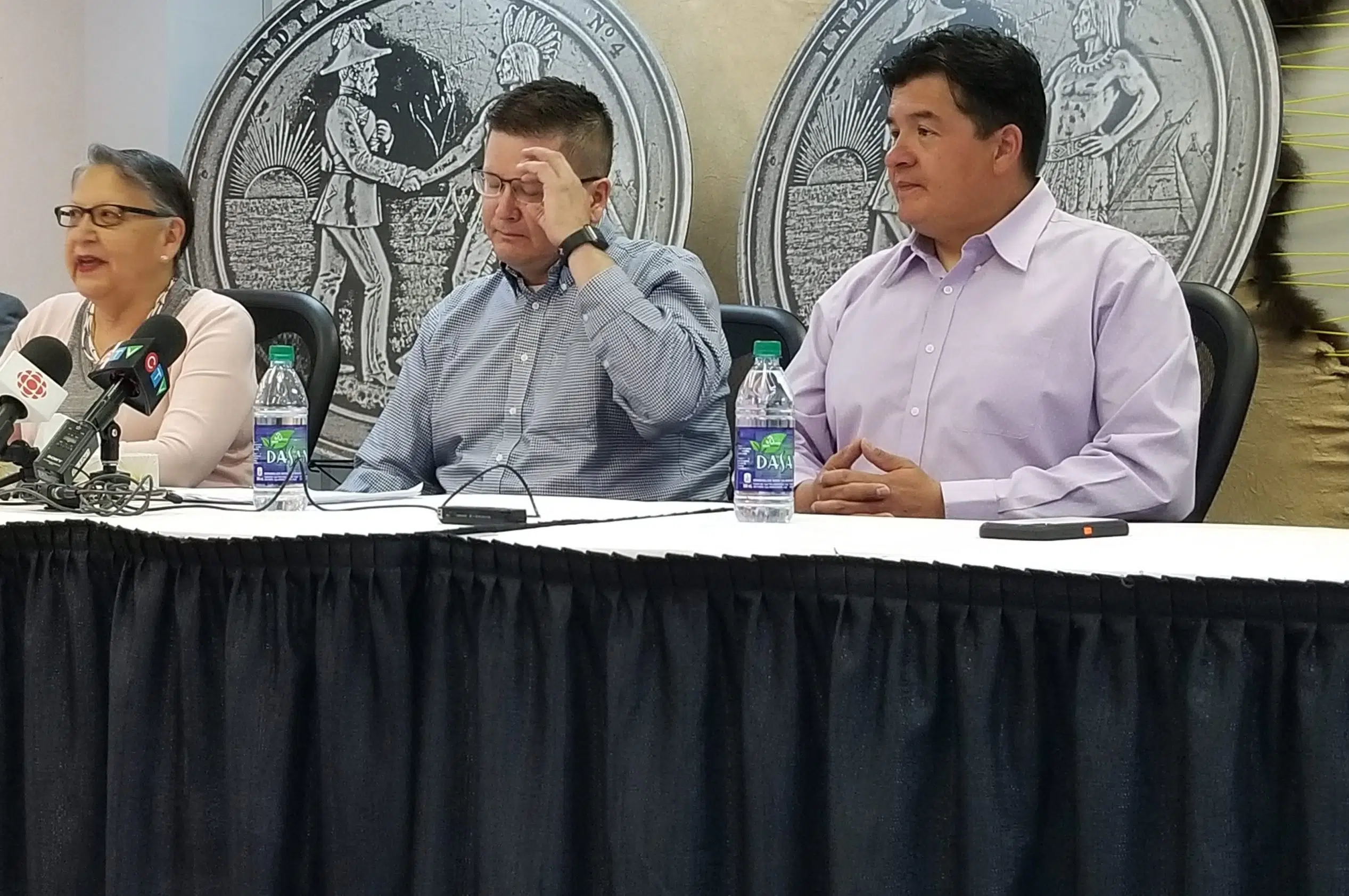When it comes to the legalities of a dispute between a Saskatchewan First Nation and a farm family, a University of Saskatchewan law professor says it’s likely both sides may not have been entirely correct.
The disagreement between the Ochapowace First Nation and the Cunday family stems from land the Cundays leased from the band. Ochapowace officials issued an eviction notice over back rent, while the Cundays still wanted to harvest the soybean crop they’d grown on the parcel.
In an earlier interview with 650 CKOM, Owen and Richard Cunday said they had been advised that the provincial Agricultural Leaseholders Act applied to their situation and gave them the right to get their crop. Further, they said they also sought permission to harvest from the land’s new leaseholder.
However, associate professor Patricia Farnese with the U of S College of Law said the provincial act almost certainly would not apply on the First Nation.
“Unless (Ochapowace) have, through their own land code or their own bylaws, incorporated the provincial legislation into it, it’s very unlikely that the provincial legislation would apply,” she said. “So they would be governed by the terms of the band bylaws and the terms of the specific lease that they signed.”
While the provincial act likely didn’t give the Cundays cover to get their soybeans, Farnese said the permission they had from the current leaseholder to be on the property very well may have.
“If the agreement says, ‘You can’t let these people on to get their soybeans,’ well, then we’re in a different situation,” she explained. “But if it’s just a lease agreement, then possession and who comes on and off that property has been given to the person in possession of that property and that would be the leaseholder.”
She noted that this doesn’t mean the band’s bylaws aren’t the law on the First Nation.
“It’s not that the bylaws don’t apply. It’s that the bylaws are more general. Unless they have a very specific bylaw about determining who gets to come on and off land that they’ve leased, I’m not sure that they could rely on ‘It’s our property, we can continue to enforce our trespass laws,’ because they’ve signed this lease agreement with a new owner,” she said.
Farnese equated the situation to someone leasing an apartment in a building. If the lease terms don’t specifically give the landlord the right to decide who’s allowed in the suite, then it remains up to the tenant.
Farnese cautioned that the area of law around this type of dispute remains somewhat unsettled, particularly because courts seem to have a hard time determining who has authority to try such cases.
She said a relatively recent case involving a First Nation trying to evict a tenant from a commercial building strained the courts, as it was difficult to determine who had jurisdiction.
“It was a good 10-year battle before (the First Nation) could get the person out of the property. Courts don’t want to deal with this, at all. I don’t know who would take this case, honestly, from a practical perspective,” she said.
The Ochapowace First Nation and the Federation of Sovereign First Nations still have a complaint with the RCMP over how police handled calls made by band officials reporting one of the Cundays was on the property with a gun. Farnese did not comment on that aspect of the situation.











